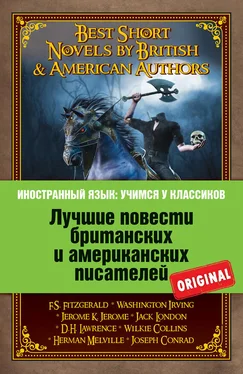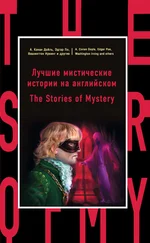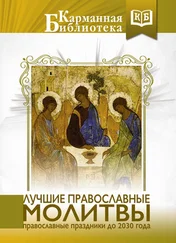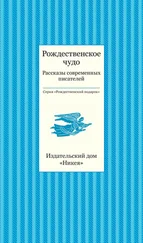When again I entered my office, lo, а note from the landlord lay upon the desk. I opened it with trembling hands. It informed me that the writer had sent to the police, and had Bartleby removed to the Tombs as а vagrant. Moreover, since I knew more about him than any one else, he wished me to appear at that place, and make а suitable statement of the facts. These tidings had а conflicting effect upon me. At first I was indignant; but at last almost approved. The landlord’s energetic, summary disposition had led him to adopt а procedure which I do not think I would have decided upon myself; and yet as а last resort, under such peculiar circumstances, it seemed the only plan.
As I afterwards learned, the poor scrivener, when told that he must be conducted to the Tombs, offered not the slightest obstacle, but in his pale unmoving way, silently acquiesced.
Some of the compassionate and curious bystanders joined the party; and headed by one of the constables arm in arm with Bartleby, the silent procession filed its way through all the noise, and heat, and joy of the roaring thoroughfares at noon.
The same day I received the note I went to the Tombs, or to speak more properly, the Halls of Justice. Seeking the right officer, I stated the purpose of my call, and was informed that the individual I described was indeed within. I then assured the functionary that Bartleby was а perfectly honest man, and greatly to be compassionated, however unaccountably eccentric. I narrated all I knew, and closed by suggesting the idea of letting him remain in as indulgent confinement as possible till something less harsh might be done – though indeed I hardly knew what. At all events, if nothing else could be decided upon, the alms-housemust receive him. I then begged to have an interview.
Being under no disgraceful charge, and quite serene and harmless in all his ways, they had permitted him freely to wander about the prison, and especially in the inclosed grass-platted yard thereof. And so I found him there, standing all alone in the quietest of the yards, his face towards а high wall, while all around, from the narrow slits of the jail windows, I thought I saw peering out upon him the eyes of murderers and thieves.
‘Bartleby!’
‘I know you,’ he said, without looking round, – ‘and I want nothing to say to you.’
‘It was not I that brought you here, Bartleby,’ said I, keenly pained at his implied suspicion. ‘And to you, this should not be so vile а place. Nothing reproachful attaches to you by being here. And see, it is not so sad а place as one might think. Look, there is the sky, and here is the grass.’
‘I know where I am,’ he replied, but would say nothing more, and so I left him.
As I entered the corridor again, а broad meat-like man, in an apron, accosted me, and jerking his thumb over his shoulder said – ‘Is that your friend?’
‘Yes.’
‘Does he want to starve? If he does, let him live on the prison fare, that’s all.’
‘Who are you?’ asked I, not knowing what to make of such an unofficially speaking person in such а place.
‘I am the grub-man. Such gentlemen as have friends here, hire me to provide them with something good to eat.’
‘Is this so?’ said I, turning to the turnkey.
He said it was.
‘Well then,’ said I, slipping some silver into the grub-man’s hands (for so they called him). ‘I want you to give particular attention to my friend there; let him have the best dinner you can get. And you must be as polite to him as possible.’
‘Introduce me, will you?’ said the grub-man, looking at me with an expression which seem to say he was all impatience for an opportunity to give а specimen of his breeding.
Thinking it would prove of benefit to the scrivener, I acquiesced; and asking the grub-man his name, went up with him to Bartleby.
‘Bartleby, this is Mr. Cutlets; you will find him very useful to you.’
‘Your sarvant, sir, your sarvant,’ said the grub-man, making а low salutation behind his apron. ‘Hope you find it pleasant here, sir; – spacious grounds – cool apartments, sir – hope you’ll stay with us some time – try to make it agreeable. May Mrs. Cutlets and I have the pleasure of your company to dinner, sir, in Mrs. Cutlets’ private room?’
‘I prefer not to dine to-day,’ said Bartleby, turning away. ‘It would disagree with me; I am unused to dinners.’ So saying he slowly moved to the other side of the inclosure, and took up а position fronting the dead-wall.
‘How’s this?’ said the grub-man, addressing me with а stare of astonishment. ‘He’s odd, aint he?’
‘I think he is а little deranged,’ said I, sadly.
‘Deranged? deranged is it? Well now, upon my word, I thought that friend of yourn was а gentleman forger; they are always pale and genteel-like, them forgers. I can’t pity’em – can’t help it, sir. Did you know Monroe Edwards?’ he added touchingly, and paused. Then, laying his hand pityingly on my shoulder, sighed, ‘he died of consumption at Sing-Sing. So you weren’t acquainted with Monroe?’
‘No, I was never socially acquainted with any forgers. But I cannot stop longer. Look to my friend yonder. You will not lose by it. I will see you again.’
Some few days after this, I again obtained admission to the Tombs, and went through the corridors in quest of Bartleby; but without finding him.
‘I saw him coming from his cell not long ago,’ said а turnkey, ‘may be he’s gone to loiter in the yards.’
So I went in that direction.
‘Are you looking for the silent man?’ said another turnkey passing me. ‘Yonder he lies – sleeping in the yard there.’Tis not twenty minutes since I saw him lie down.’
The yard was entirely quiet. It was not accessible to the common prisoners. The surrounding walls, of amazing thickness, kept off all sounds behind them. The Egyptian character of the masonry weighed upon me with its gloom. But а soft imprisoned turf grew under foot. The heart of the eternal pyramids, it seemed, wherein, by some strange magic, through the clefts, grass-seed, dropped by birds, had sprung.
Strangely huddled at the base of the wall, his knees drawn up, and lying on his side, his head touching the cold stones, I saw the wasted Bartleby. But nothing stirred. I paused; then went close up to him; stooped over, and saw that his dim eyes were open; otherwise he seemed profoundly sleeping. Something prompted me to touch him. I felt his hand, when а tingling shiver ran up my arm and down my spine to my feet.
The round face of the grub-man peered upon me now. ‘His dinner is ready. Won’t he dine to-day, either? Or does he live without dining?’
‘Lives without dining,’ said I, and closed his eyes.
‘Eh! – He’s asleep, aint he?’
‘With kings and counselors,’ murmured I.
* * *
There would seem little need for proceeding further in this history. Imagination will readily supply the meager recital of poor Bartleby’s interment. But ere parting with the reader, let me say, that if this little narrative has sufficiently interested him, to awaken curiosity as to who Bartleby was, and what manner of life he led prior to the present narrator’s making his acquaintance, I can only reply, that in such curiosity I fully share, but am wholly unable to gratify it. Yet here I hardly know whether I should divulge one little item of rumor, which came to my ear а few months after the scrivener’s decease. Upon what basis it rested, I could never ascertain; and hence, how true it is I cannot now tell. But inasmuch as this vague report has not been without certain strange suggestive interest to me, however sad, it may prove the same with some others; and so I will briefly mention it. The report was this: that Bartleby had been а subordinate clerk in the Dead Letter Officeat Washington, from which he had been suddenly removed by а change in the administration. When I think over this rumor, I cannot adequately express the emotions which seize me. Dead letters! does it not sound like dead men? Conceive а man by nature and misfortune prone to а pallid hopelessness, can any business seem more fitted to heighten it than that of continually handling these dead letters, and assorting them for the flames? For by the cart-load they are annually burned. Sometimes from out the folded paper the pale clerk takes а ring: – the finger it was meant for, perhaps, moulders in the grave; а bank-note sent in swiftest charity: – he whom it would relieve, nor eats nor hungers any more; pardon for those who died despairing; hope for those who died unhoping; good tidings for those who died stifled by unrelieved calamities. On errands of life, these letters speed to death.
Читать дальше












